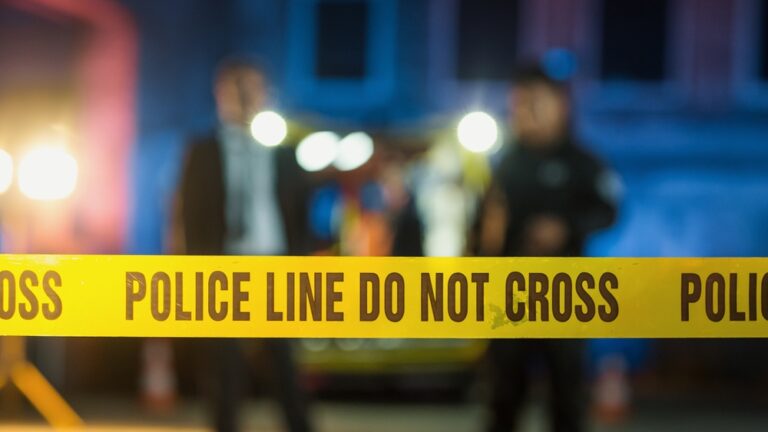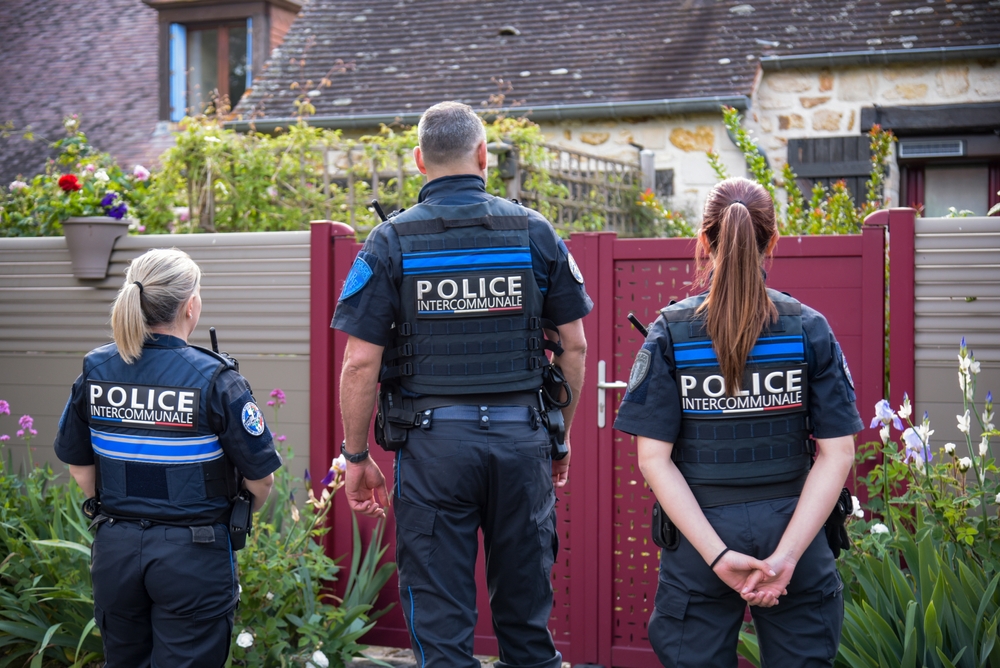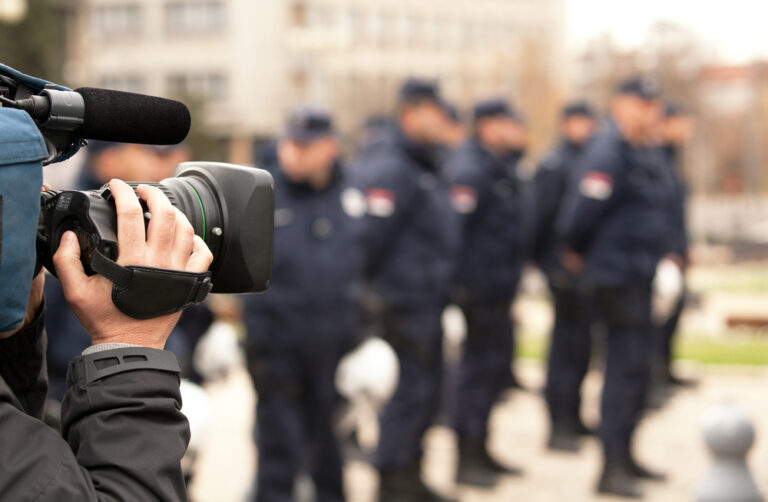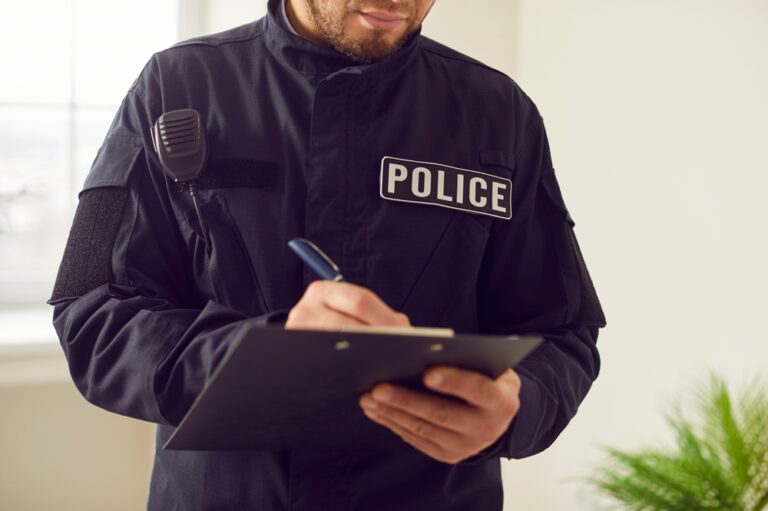
Police Tape 101: Everything You Need to Know
Police tape, commonly known as crime scene tape, is an important tool used by law enforcement to secure…

I’ve done several welfare checks throughout my career as a police officer. And as a 911 operator, I’ve sent officers to do welfare checks on people for a variety of different reasons.
In the extensive guide you will find the answer to the question “what is a welfare check” and many more.
Lets get started.
A good definition for welfare check is:
“A welfare check is a procedure that is conducted after the police have received a call to check on an individual’s well-being or safety.”
Another name for welfare check is wellness check.
A welfare check is not a criminal investigation but rather, it is part of a police officers’ caretaking duty within their community.
Usually, you call the police.
If you think it’s an emergency where life or health is at risk, you should call 911. If it’s a situation that does not demand an immediate response, you should call the non-emergency number for your local police. As far as I know, only the police have the authority to perform a proper welfare check.
For some welfare checks, sending an ambulance rather than a police patrol is necessary; it depends on the nature of the situation. If you are worried that someone is in need of immediate medical assistance, an ambulance would be more helpful than a police patrol. However, the paramedics would need help from the police to get inside a locked house, so the police often have to come anyway.
There are many reasons to ask for a wellness check. I will list the most common scenarios below. However, if you’re thinking about calling in a wellness check and can’t find your situation listed here, please do not hesitate to call your local police station and ask.
This list is not exhaustive. Several other situations qualify for a wellness check by the police. As mentioned before, if you’re not sure, please call the police and ask. It’s better to be safe and make the call than wish you had.
There is no definitive answer to this. However, I can share a few of my past experiences with you.
When the police do a welfare check, they will first try to find the person. They will try to call, or they will send an officer or detective to the person’s house.
If the police can’t find the person, they have to assess how critical the situation is. The amount of resources used to find the person depends on their assessment.
The police might have to break into the person’s house. If they find the person dead, then the welfare check is concluded and an investigation into the cause of death begins.
If they find the person needing medical care, the police will ensure that medical care (physical or mental) is provided.
The police might find a person who doesn’t need medical care, but has simply chosen not to be available to anyone. There might be a valid reason for someone to stop answering phone calls or cease contact with the outside world. The police will then try to convince the person to send a message to the concerned party and confirm that they are alive.
From time to time, the police get false requests for wellness checks, meaning the caller wants the police to find someone for them by pretending to be worried about said person’s health. The caller might be a stalker, a criminal, or someone else with less than good intentions. If the police do their job correctly, they will expose this false request and could possibly charge the caller with a crime.
When the police are called to do a welfare check on children, the officers will assess the child’s situation. If they find the child living in a bad or unsafe environment, they will call the child protection services to help decide what course of action to take as they are the proper authority in this matter.
In some cases, the police will bring child protection services to a child’s wellness check anyway. In other cases, the police might discover that a child is the victim of a crime. In that case, the police will start a proper investigation.
Yes, the police can force entry for a welfare check under certain circumstances.
Constitutional rights reign supreme in America and the Fourth Amendment guarantees that “the right of the people to be secure in their persons, houses, papers, and effects against unreasonable searches and seizures, shall not be violated…”
However, there are specific concessions in the law that allow the police to enter your home to do a welfare check.
As long as the police perform the check as part of their community caretaker function, and it is “totally divorced from the detection, investigation, or acquisition of evidence relating to the violation of a criminal statute,” then they are legally allowed to enter your home. This was decided by the United States Supreme Court in Cady v. Dombrowski.
Read more about the community caretaker exception here.
Please check these links for more thorough explanations:
https://booth.law/the-role-of-law-enforcement-in-child-welfare-checks/
It depends.
There are different laws in different states and countries. It might also depend on the reason for the welfare check request. But yes, it is possible to ask for an anonymous welfare check. You would have to request that the police not say your name.
This can be interpreted in two ways:
1 – Sometimes, the police are used as a tool to harass someone through frequent welfare check requests.
The police will probably figure this out after a few times. If you are a victim of this kind of harassment, you should notify the police who conduct the welfare checks on you. Let them know that someone is requesting for welfare checks to harass you.
2- Some people accuse the police of harassing them when they show up for a welfare check.
This is NOT the case! If the police are asked to do a wellness check, it’s because someone is worried about their well-being. As mentioned in this article, the police have a community caretaking function that is seperate from their role as crime-fighters.
Of course, I can’t say that the police are completely without fault. There have certainly been incidents where police have abused their position of power. But I can assure you that those incidents are only a fraction compared to genuine welfare checks that are vital to a community’s safety and well-being. .
Again, it depends.
If you are the one that the police were asked to check on and they can see there is no problem just by talking with you at the door, then they will probably leave.
If the welfare check is about a screaming child or woman and an angry man answers the door, they would probably have a hard time refusing the wellness check, even if it’s their home.
The following video shows a welfare check that starts out wrong. One police officer is asked to quit his job because of this. In my opinion, that’s a bit harsh as I think there should be a little leniency for mistakes in this job.

Police tape, commonly known as crime scene tape, is an important tool used by law enforcement to secure…

The police are called daily regarding various incidents of public interest. It is our responsibility to provide the…

Many police officers experience terrible, traumatic events in the line of duty. A significant number of police officers…